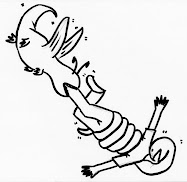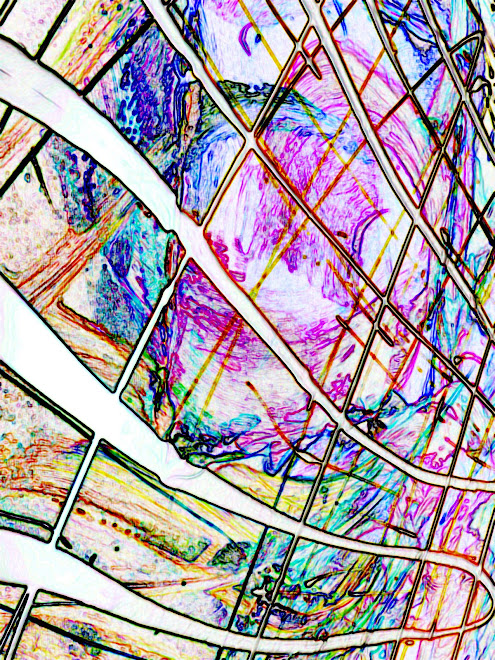Dogs Show Their True Colours
Released in the midst of the “monicagate” era in the United States, the films Wag the Dog [1997] and Primary Colors [1998] deliver some biting political satire that takes “all the world’s a stage and all the men and women merely players” to a whole new level. In the worlds of Wag the Dog and Primary Colors life is like a play, but it is a play promoted by the media and directed by the politically savvy. There might be nothing new to movies that poke fun at people, politics, the media, and the government, but the thought provoking cynicism on the theme of power and control hits uncomfortable close to home.
Wag the Dog, like Stanley Kubrick’s Dr Strangelove, is somewhat disconcerting as the concept is so absurd, yet potentially plausible. After being caught in a scandalous situation just days before the election, the President’s chances of being re-elected are slim. The president’s political consultants move swiftly to manipulate the media (and the voting public) and direct their attention away from the allegations – focusing it instead on terrorism and a manufactured war with Albania. It is the parallels we can draw to reality here that make Wag the Dog so effective. While the president is not named in the film, references are made to the Gulf War and the assumption can be drawn that George Bush Senior is the president in question. The film also eerily pre-empted President Clinton’s actions in his second term of office, where the Lewinsky scandal broke and questionable military operations like Desert Fox were undertaken.
Based on Larry Beinhart’s book American Hero, the film satirises the relationship between politics, the media, and public opinion. The film implies that politics is about mass entertainment and that the political process is about being bigger, better, and louder than your opponent. Playing on the notion that the media also pursue these noisier stories, in the world of Wag the Dog the press can be fed anything and they will lap it up, as long as it is going to sell more news. Here the truth becomes of little consequence as “truth” is defined by whatever the public is convinced to be true. Wag the Dog alludes that reality is constructed for us by media advisors who use the media to showcase their latest political agenda – and in a hall of smoke and mirrors it is difficult to tear your eyes away from the Hollywood glamour, even if you wanted to.
The real-life resemblance in Primary Colors is more overt. The film was based on then-anonymous author Joe Klein’s 1996 roman à clé. Klein’s politically charged novel by the same name was a fictionalised account of Clinton’s run for the presidency in 1992. It drew considerably from his own notes at the time (as a reporter for Newsweek) as well as Pennebaker and Hegedus’s documentary The War Room [1994]. Primary Colors (the film) exploited the use of a visual medium and candidly parodied the Clintons and their campaign team. Primary Colors is “a neat examination of the power of the American media machine and its insatiable appetite for political intrigue” [Harvey 1998]. Here the political process is seen as dominated by the media, with politicians at their mercy. The goal of this crazy game is to stay a step ahead of your opponent, be ready to counter any censure in an instant, and be prepared to sling some mud of your own.
Primary Colors illuminates that ideals are often compromised throughout the political process in the pursuit of victory. But what for victory if at any price? In Primary Colors our heroes are portrayed as sacrificing their morals on the premise that flaws are redeemed, and underhanded tactics are justified, when it is in the pursuit of loftier goals. While this may cause a crisis of conscience for a time, once caught up in the momentum it is all too easy to lose sight of reality. The media further capitalises on this excitement, whipping the public into a frenzy, with little care as to how or why they do so as long as they’re receiving the attention and the revenue that follows. It is unfortunate that both the media’s and the public’s appetite for intrigue is essentially undoing us. Truth, if there is such a thing, is distorted either in pursuit of a scoop, or simply by anyone looking to discredit people in power. It is an environment where you are guilty until proven innocent – and even if you are innocent it will often be too late.
Wag the Dog and Primary Colors may differ in their representations, but they both ultimately deal with the concept of power and control – power over the people and public opinion, and control of information and truth. Wag the Dog insinuates that it is political operatives who wield the power, with the media as their conduit to control. Primary Colors suggests that power is shared between opinion leaders (and of course their advisors) and the media, with both having a level of control over publicising information and creating truth. Whichever notion you side with, it is obvious that the issues of power and control have not dissipated with time. A decade on, these films are still as relevant as if they had been released recently. Today we can relate to the issues in the films from our experiences with the “wars” in Afghanistan and Iraq, and the constant scandals paraded in the media, but it is the core themes that really play with our conscience. While we may be sceptical of the things we see and hear in the media, we have little reason not to believe in the information we are given. Can we trust politicians and their advisors? Do the ends always justify the means? Who is public opinion and “truth” constructed by? How would we know if it our reality is being manufactured for us? We will all have different answers to these questions, and it is up to us to find them.
I would like to believe that we, as individuals, have both power and control. I would like to believe that we all have the power over our own lives, and as such have control over our thoughts and behaviours. Perhaps it’s because I just don’t like the idea that I am being subtly manipulated by other forces. But whether I like it or not the question remains; how would I know if I am, and would it make a difference? At the end of the day they might just be entertainment, but it is films like Wag the Dog and Primary Colors that advance the rational, critical, and independent thinking of audiences and encourage us to form our own opinions. It is my hope that if we know the rules of the game then we can, at least in part, play the game ourselves.
Memorable Quotes
Conrad Brean: What difference does it make if it’s true? If it’s a story and it breaks, they’re gonna run with it.
Conrad Brean: We’re not gonna have a war, we’re gonna have the appearance of a war.
Stanley Motss: I’m in show business, why come to me?
Conrad Brean: War is show business, that’s why we’re here.
Conrad Brean: What’s the thing people remember about the Gulf War? A bomb falling down a chimney. Let me tell you something: I was in the building where we filmed that with a 10-inch model made out of Lego.
Stanley Motss: Is that true?
Conrad Brean: Who the hell’s to say?
Stanley Motss: It’s all, you know, thinking ahead, thinking ahead.
Conrad Brean: It’s like being a plumber.
Stanley Motss: Yea, it’s like a plumber – do your job right and nobody should notice. But when you fuck it up, everything gets full of shit.
Conrad Brean: Why does the dog wag its tail? Because the dog is smarter than the tail. If the tail were smarter, it would Wag the Dog.
Primary Colors
Henry Burton: A man who believes what I believe and lies about it to get elected, as opposed to a man who just doesn’t give a fuck… well, I’ll choose the liar.
Richard Jemmons: The media giveth and go fuck yourself.
Governor Fred Picker: You know this is a terrific country, but sometimes we go a little crazy. Maybe that’s part of our greatness, part of our freedom. But if we don’t watch out and calm down, it might just spin out of control. You know the world is getting more and more complicated, and politicians have to explain things to you in simpler terms, so they can get their little oversimplified explanations on the evening news. And eventually instead of even trying to explain things they give up and just start slinging mud at each other. And it’s all to keep you excited. To keep you watching, like you watch a car watch or a wrestling match. As a matter of fact, that’s exactly what it’s like – professional wrestling. It’s staged and its fake and it doesn’t mean anything. And that goes for the debates. We don’t hate our opponents, hell half the time we don’t even know them. But it seems it’s the only way we know how to keep you all riled up. So what I want to do with this campaign is kind of quieten things down and start having a conversation, about what sort of country we want this to be in the next century.
Libby Holden (on pandering to the media): Lets just scrape away your last little shreds of dignity and wallow in the trash.
Governor Fred Picker: … no matter what I do, the press is still going to find out the rest of it, aren’t they?
Governor Jack Stanton: If they think it will sell one newspaper, yes.
Governor Jack Stanton: We can do incredible things. We can change this country. I’m gonna win this thing. Look me in the eye and tell me that you don’t want to be part of it.
Recommendations
If you liked Wag the Dog or Primary Colors then Chorazy Thoughts recommends the following films:
The Great Dictator [Chaplin 1940]
Dr Strangelove [Kubrick 1964]
The War Room [Pennebaker and Hegedus 1994]
Canadian Bacon [Moore 1995]
Thank You For Smoking [Reitman 2006]
Land of the Blind [Edwards 2006]
All the King’s Men [Zaillian 2006]




No comments:
Post a Comment